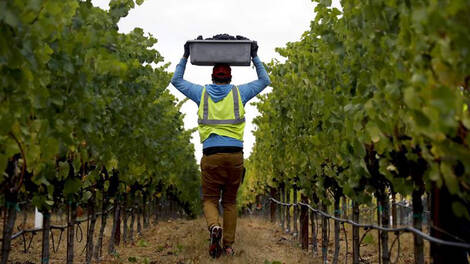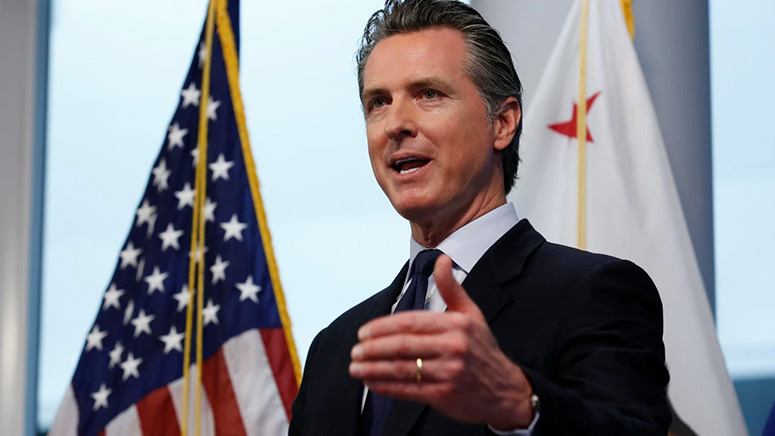
Primavera / Spring 2020
Surviving the Virus of Exclusion

In December 2019, a new biological virus emerged at a food market in China affecting thousands all around the world. Spreading and growing faster than anyone ever imagined, the novel coronavirus quickly reached the United States where it has over one million infected and a death toll of tens of thousands. Slow to act, the Trump administration finally signed a bipartisan 2 trillion dollar relief plan to aid millions of Americans during this global health crisis. The legislation, which provides one-time cash payments to low- and middle-income households, excludes not only undocumented immigrants but also children who are U.S. citizens but have at least one parent who is undocumented. The injustice that undocumented Latinx people have suffered as result of the government’s response to the virus has shown just how inhumanely they are treated by the government. Some Undocumented Latinx workers need to be recognized as essential workers during this time. Being essential workers, they still go to work--domestic, supermarket, even agricultural labor--and possibly expose themselves to the virus to provide for the nation. Sonoma County is one of the largest agricultural producers near the Bay; a huge population of undocumented immigrants that are greatly affected economically by this pandemic and have received little from the state as recognition of their contributions to the nation.

The Hollow Reality of Exclusion
The exclusion of undocumented individuals from the relief bill signed by the Trump administration has forced hundreds of people--especially agriculture laborers--to risk their well-being by going to work daily in the fields. Lissandra Villa, journalist for TIMES magazine stated how, “most undocumented immigrants will also not receive unemployment insurance if they’re among the millions who lose work due to the pandemic. With few exceptions, undocumented workers are not eligible for aid due to their immigration status under normal circumstances”. Unfortunately, for many of them, they have no choice but to keep working to support their families. Nevertheless, with the COVID-19 pandemic surging daily, the undocumented communities of Sonoma County, like in other counties, are having to inevitably deal with the fact that because of the exclusion, they cannot afford to shelter in place.
A daughter of Latinx immigrant parents, Lesley Rodriguez, comes from a mixed status family and will not benefit from the legislation Trump passed. She emphasized, “It's harmful for the families that are like [mine].” Her parents being front-line workers during this pandemic, have to work to keep the privileged public stocked up on groceries and supplies. They are experiencing this injustice of exclusion while Rodriguez’s parents’ work is being unrecognized by many as unessential. It is crucial to realize that these individuals are essential workers and that without them, the grocery stores we depend on for food--specifically produce--would be empty.
The importance of community during a crisis
The legislation includes a provision that offers free testing for the virus and treatment as well for people uninsured through Medicaid, however, this does not apply to uninsured undocumented immigrants like Araujo. Rosana Araujo is a single mother from Uruguay working in the health care unit. Throughout this whole pandemic she says, "This pandemic is affecting me emotionally, I'm very, very afraid of getting sick." (Araujo). With orders to stay at home and practice social distancing, undocumented domestic workers are unprotected at times like these causing great impact on their financial situation. At any moment in time, it is important to have a community to rely on--especially in times of a crisis.
It is evident, to say the least, that there is a large discrepancy between federal support and local support for the hardworking undocumented community. This is something that has occurred throughout history. Only recently, local organizations have risen to support these communities during times of distress following the Sonoma County fires. While the Trump administration was attacking California and threatening to withhold federal aid after the devastation of the fires, local government and private nonprofits were helping not only documented individuals but also immigrant communities. Additionally, for many years, private organizations have been there for the aiding with the lasting and enduring process towards citizenship--a process the current administration has longed to get rid of for people from select countries.

An organization that specifically provides support for undocumented people in Sonoma County--Undocu Fund--was originally started to provide financial relief to immigrant families after the Sonoma County fires. "Although undocumented families are the backbone of the economy in the service sector and as farmworkers, they are still not eligible to apply for these federal and state funds as a safety net for their families, and it is important to have this fund for these undocumented families who right now are not eligible," said Eder Gaona-Macedo, executive director of Future Leaders of America. Likewise, another non-profit organization that has developed into one of the most supportive organizations in the North Bay to undocumented immigrants is Catholic Charities. As their mission, they are dedicated to financially support the homeless and undocumented populations of the North Bay, that includes Sonoma County. Sonoma County is known for many things, the most prevalent being the wine-industry. In addition to the hundreds of immigrants that work domestically, hundreds of others work in the fields and have currently found themselves choosing between following shelter orders and having a very hard time paying for bills or going back to work despite the risk of infection.
California Once Again Sets a Potential Precedent
Across the board, this pandemic is hitting low wage workers hard and according to Ken Jacobs--director at UC Berkeley's Labor Center--low income immigrant workers are particularly vulnerable during this health crisis. Because of this vulnerability, many are losing their jobs. For years, undocumented immigrants have been unrecognized and unappreciated for their strenuous labor in agricultural fields. That being said, despite their millions of dollars paid in federal taxes, immigrants are allowing the nation’s population to have a continuous supply of essential foods such as vegetables. This is something that Governor Newsom of California has pointed out, “California is the most diverse state in the nation. Our diversity makes us stronger and more resilient. Every Californian, including our undocumented neighbors and friends, should know that California is here to support them during this crisis. We are all in this together.” California once again has tackled an injustice before the rest of the nation. With a cap of $1000 per family, Governor Newsom has set a new initiative to support these essential, tax-paying workers. Newsom announced that $75 million in statewide Disaster Relief Assistance funding would be used to provide financial support for immigrant workers affected by COVID-19. It is initiatives like these that will justly support a community that serves as a backbone for the whole nation.
Work Cited
- Villa, Lissandra. “Undocumented Immigrants Are Essential but Exposed In the Coronavirus Pandemic.” Time, 17 Apr. 2020
- Furch, Pitir. “Some Undocumented Domestic Workers Slip Through Holes In Coronavirus Safety Net.” Northern California Public Media, 2020
- Rode, Erin. “Coronavirus: Groups Reopen 805 Undocufund to Help Undocumented Immigrants during Pandemic.” Ventura County Star, Ventura County Star, 1 Apr. 2020
